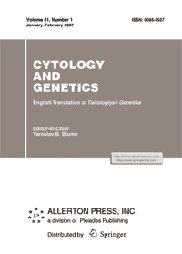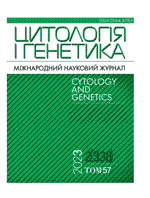We have hypothesized that the TAP2 gene is associated with lipid metabolism. Here, 10 Min-pig tissues were collected to detect the expression of TAP2 in different tissues. We obtained dorsal subcutaneous structural vascular fraction (SVF) cells from the Min-pig’s back adipose tissue and induced SVF cells into mature adipocytes. By overexpression and interference, the effect of TAP2 on fat deposition in Min-pig SVF cells was studied. Recombinant human insulin, dexamethasone, indomethacin, 3-isobutyl-1-methylxanthine, triiodothyronine, and rosiglitazone could successfully induce SVF cells into mature adipocytes, and the induction efficiency was above 50%. The tissue expression profile showed that TAP2 was expressed in different tissues, and the highest expression was found in back fat, spleen, and back muscle. Overexpression of the TAP2 gene in SVF cells could significantly increase the expression of adipose differentiation-related genes. The expression of TAP2 in SVF cells was reduced to 0.6 times after transfection of the TAP2 gene interference fragment. The adipogenic transcription factor gene C/EBPα, fatty acid synthase gene FSA, and adipocyte directional differentiation factor ADD1 were downregulated, while the expression of lipolysis-related gene LPL was inhibited. In conclusion, TAP2 expression can promote the deposition of subcutaneous fat on Min-pig’s back adipose tissue.
Keywords: gene interference, gene overexpression, Min-pig, SVF cells, TAP2

Full text and supplemented materials
References
Albuquerque, A., Ovilo, C., Nunez, Y., et al., Transcriptomic profiling of skeletal muscle reveals candidate genes influencing muscle growth and associated lipid composition in Portuguese local pig breeds, Animals (Basel), 2021, vol. 11, no. 5, p. 1423. https://doi.org/10.3390/ani11051423
Al-Ghadban, S., Diaz, Z.T., Singer, H.J., et al., Increase in leptin and PPAR-γ gene expression in lipedema adipocytes differentiated in vitro from adipose-derived stem cells, Cells, 2020, vol. 9, no. 2, p. 430. https://doi.org/10.3390/cells9020430
Alharthi, A.M., Banaganapalli, B., Hassan, S.M., et al., Complex inheritance of rare missense variants in PAK2, TAP2, and PLCL1 genes in a consanguineous Arab family with multiple autoimmune diseases including celiac disease, Front. Pediatr., 2022, vol. 10, p. 895298. https://doi.org/10.3389/fped.2022.895298
Barr, V.A., Balagopalan, L., Barda-Saad, M., et al., T-cell antigen receptor-induced signaling complexes: internalization via a cholesterol-dependent endocytic pathway, Traffic, 2006, vol. 7, no. 9, pp. 1143–1162. https://doi.org/10.1111/j.1600-0854.2006.00464.x
Belleville-Rolland, T., Leuci, A., Mansour, A., et al., Role of membrane lipid rafts in MRP4 (ABCC4)-dependent regulation of the cAMP pathway in blood platelets, Thromb. Haemostasis, 2021. https://doi.org/10.1055/a-1481-2663
Catani, M.V., Tullio, V., Maccarrone, M., et al., DNA-protein-interaction (DPI)-ELISA assay for PPAR- γ receptor binding, Methods Mol. Biol., 2023, vol. 2576, pp. 133–143. https://doi.org/10.1007/978-1-0716-2728-0_10
Chen, Z., Torrens, J.I., Anand, A., et al., Krox20 stimulates adipogenesis via C/EBPβ-dependent and -independent mechanisms, Cell Metab., 2005, vol. 1, no. 2, pp. 93–106. https://doi.org/10.1016/j.cmet.2004.12.009
Chen, J., Zhang, H., Gao, H., et al., Effects of dietary supplementation of alpha-ketoglutarate in a low-protein diet on fatty acid composition and lipid metabolism related gene expression in muscles of growing pigs, Animals (Basel), 2019, vol. 9, no. 10. https://doi.org/10.3390/ani9100838
Cimmino, I., Oriente, F., D’Esposito, V., et al., Low-dose Bisphenol-A regulates inflammatory cytokines through GPR30 in mammary adipose cells, J. Mol. Endocrinol., 2019, vol. 63, no. 4, pp. 273–283. https://doi.org/10.1530/JME-18-0265
Darazam, I.A., Hakamifard, A., Momenilandi, M., et al., Delayed diagnosis of chronic necrotizing granulomatous skin lesions due to TAP2 deficiency, J. Clin. Immunol., 2023, vol. 43, no. 1, pp. 217–228. https://doi.org/10.1007/s10875-022-01374-7
El-Assaad, A., Dawy, Z., and Nemer, G., Electrostatic study of Alanine mutational effects on transcription: application to GATA-3: DNA interaction complex, 37th Annual International Conference of the IEEE Engineering in Medicine and Biology Society (EMBC), 2015, vol. 2015, pp. 4005–4008. https://doi.org/10.1109/EMBC.2015.7319272
Farmer, S.R., Transcriptional control of adipocyte formation, Cell Metab., 2006, vol. 4, no. 4, pp. 263–273. https://doi.org/10.1016/j.cmet.2006.07.001
Feng, Y., An, Z., Chen, H., et al., Ulva prolifera extract alleviates intestinal oxidative stress via Nrf2 signaling in weaned piglets challenged with hydrogen peroxide, Front. Immunol., 2020, vol. 11, p. 599735. https://doi.org/10.3389/fimmu.2020.599735
Flori, L., Rogel-Gaillard, C., Cochet, M., et al., Transcriptomic analysis of the dialogue between Pseudorabies virus and porcine epithelial cells during infection, BMC Genomics, 2008, vol. 9, p. 123. https://doi.org/10.1186/1471-2164-9-123
Gajate, C. and Mollinedo, F., Lipid raft isolation by sucrose gradient centrifugation and visualization of raft-located proteins by fluorescence microscopy: the use of combined techniques to assess Fas/CD95 location in rafts during apoptosis triggering, in Methods in Molecular Biology, 2021, vol. 2187, pp. 147–186. https://doi.org/10.1007/978-1-0716-0814-2_9
Garcia-Borges, C.N., Phanavanh, B., and Crew, M.D., Characterization of porcine TAP genes: alternative splicing of TAP1, Immunogenetics, 2006, vol. 58, nos. 5–6, pp. 374–382. https://doi.org/10.1007/s00251-006-0103-8
Han, S.L., Liu, Y., Limbu, S.M., et al., The reduction of lipid-sourced energy production caused by ATGL inhibition cannot be compensated by activation of HSL, autophagy, and utilization of other nutrients in fish, Fish Physiol. Biochem., 2021, vol. 47, no. 1, pp. 173–188. https://doi.org/10.1007/s10695-020-00904-7
Huang, W., Zhang, X., Li, A., et al., Genome-wide analysis of mRNAs and lncRNAs of intramuscular fat related to lipid metabolism in two pig breeds, Cell Physiol. Biochem., 2018, vol. 50, no, 6, pp. 2406–2422. https://doi.org/10.1159/000495101
Jiang, M.J., Li, L., Huang, W.F., et al., Rubus chingii var. suavissimus alleviates high-fat diet-induced lipid metabolism disorder via modulation of the PPARs/SREBP pathway in Syrian golden hamsters, J. Nat. Med., 2021, vol. 75, pp. 884–892. https://doi.org/10.1007/s11418-021-01536-8
Lee, S.H., Lee, S.H., Park, H.B., et al., Identification of key adipogenic transcription factors for the pork belly parameters via the association weight matrix, Meat Sci., 2023, vol. 195, p. 109015. https://doi.org/10.1016/j.meatsci.2022.109015
Li, D., Zhang, F., Zhang X., et al., Distinct functions of PPARγ isoforms in regulating adipocyte plasticity, Biochem. Biophys. Res. Commun., 2016, vol. 481, nos. 1–2, pp. 132–138. https://doi.org/10.1016/j.bbrc.2016.10.152
Lin, J., Cao, C., Tao, C., et al., Cold adaptation in pigs depends on UCP3 in beige adipocytes, J. Mol. Cell Biol., 2017, vol. 9, no. 5, p. 364–375. https://doi.org/10.1093/jmcb/mjx018
Liu, Y., Yang, X., Jing, X., et al., Transcriptomics analysis on excellent meat quality traits of skeletal muscles of the Chinese indigenous min pig compared with the large white breed, Int. J. Mol. Sci., 2018, vol. 19, no. 1, p. 21. https://doi.org/10.3390/ijms19010021
Liu, L., Cao, P., Zhang, L., et al., Comparisons of adipogenesis-and lipid metabolism-related gene expression levels in muscle, adipose tissue and liver from Wagyu-cross and Holstein steers, PLoS One, 2021, vol. 16, no. 2, p. e0247559. https://doi.org/10.1371/journal.pone.0247559
Ma, W., Lehner, P.J., Cresswell, P., et al., Interferon-γ rapidly increases peptide transporter (TAP) subunit expression and peptide transport capacity in endothelial cells, J. Biol. Chem., 1997, vol. 272, no. 26, pp. 16585–16590. https://doi.org/10.1074/jbc.272.26.16585
Nagy, N., Vanky, F., and Klein, E., Tumor surveillance: expression of the transporter associated with antigen processing (TAP-1) in ex-vivo human tumor samples and its elevation by in vitro treatment with IFN-γ and TNF-α, Immunol. Lett., 1998, vol. 64, nos. 2–3, pp. 153–160. https://doi.org/10.1016/s0165-2478(98)00104-7
Nian, H.Y., Zhang, R.X., Ding, S.S., et al., Emotional responses of piglets under long-term exposure to negative and positive auditory stimuli, Domest. Anim. Endocrinol., 2023, vol. 82, p. 106771. https://doi.org/10.1016/j.domaniend.2022.106771
Pan, Y., Jing, J., Qiao, L., et al., MiRNA-seq reveals that miR-124-3p inhibits adipogenic differentiation of the stromal vascular fraction insheep via targeting C/EBPα, Domest. Anim. Endocrinol., 2018, vol. 65, pp. 17–23. https://doi.org/10.1016/j.domaniend.2018.05.002
Pang, T., Tang, Q., Wei, J., et al., Construction of a novel immune-related prognostic-predicting model of gastric cancer, Gene, 2022, vol. 852, p. 147032. https://doi.org/10.1016/j.gene.2022.147032
Park, W.Y., Park, J., Lee, S., et al., PEX13 is required for thermogenesis of white adipose tissue in cold-exposed mice, Biochim. Biophys. Acta, Mol. Cell Biol. Lipids, 2022, vol. 1867, no. 1, p. 159046. https://doi.org/10.1016/j.bbalip.2021.159046
Raghavan, M., Del Cid, N., Rizvi, S.M., et al., MHC class I assembly: out and about, Trends Immunol., 2008, vol. 29, no.9, pp. 436–443. https://doi.org/10.1016/j.it.2008.06.004
Rosen, E.D., Hsu, C.H., Wang, X., et al., C/EBPα induces adipogenesis through PPARγ: a unified pathway, Genes Dev., 2002, vol. 16, no. 1, pp. 22–26. https://doi.org/10.1101/gad.948702
Roth, D., Benz, J., Grether, U., et al., Homogeneous Time-Resolved Fluorescence Resonance Energy Transfer (TR-FRET) cofactor recruitment assay for PPARα and PPARγ, in Methods in Molecular Biology, 2023, vol. 2576, pp. 155–169. https://doi.org/10.1007/978-1-0716-2728-0_12
Salazar-Onfray, F., Charo, J., Petersson, M., et al., Down-regulation of the expression and function of the transporter associated with antigen processing in murine tumor cell lines expressing IL-10, J. Immunol., 1997, vol. 159, no. 7, pp. 3195–3202.
Sidhom, E.H., Kim, C., Kost-Alimova, M., et al., Targeting a Braf/Mapk pathway rescues podocyte lipid peroxidation in CoQ-deficiency kidney disease, J. Clin. Invest., 2021, vol. 131, no. 5. https://doi.org/10.1172/JCI141380
Sun, N., Liu, D., Chen, H., et al., Localization, expression change in PRRSV infection and association analysis of the porcine TAP1 gene, Int. J. Biol. Sci., 2012, vol. 8, no. 1, pp. 49–58. https://doi.org/10.7150/ijbs.8.49
Suzuki, K., Yanagi, M., Mori-Aoki, A., et al., Transfection of single-stranded hepatitis A virus RNA activates MHC class I pathway, Clin. Exp. Immunol., 2002, vol. 127, no 2, pp. 234–242. https://doi.org/10.1046/j.1365-2249.2002.01767.x
Tanaka, T., Yoshida, N., Kishimoto, T., et al., Defective adipocyte differentiation in mice lacking the C/EBPβ and/or C/EBPδ gene, EMBO J., 1997, vol. 16, no. 24, pp. 7432–7443. https://doi.org/10.1093/emboj/16.24.7432
Tang, S., Xie, J., Wu, W., et al., High ammonia exposure regulates lipid metabolism in the pig skeletal muscle via mTOR pathway, Sci. Total Environ., 2020, vol. 740, p. 139917. https://doi.org/10.1016/j.scitotenv.2020.139917
Vaske, D.A., Ruohonen-Lehto, M.K., Larson, R.G., et al., Rapid communication: restriction fragment length polymorphisms at the porcine transporter associated with antigen processing 1 (TAP1) locus, J. Anim. Sci., 1994, vol. 72, no. 1, p. 255. https://doi.org/10.2527/1994.721255x
Wang, J., Hua, L., Chen, J., et al., Identification and characterization of long non-coding RNAs in subcutaneous adipose tissue from castrated and intact full-sib pair Huainan male pigs, BMC Genomics, 2017, vol. 18, no. 1, p. 542. https://doi.org/10.1186/s12864-017-3907-z
Wang, Q., Song, Z., Yang, J., et al., Transcriptomic analysis of the innate immune signatures of a SARS-CoV-2 protein subunit vaccine ZF2001 and an mRNA vaccine RRV, Emerging Microbes Infect., 2022, vol. 11, no. 1, pp. 1145–1153. https://doi.org/10.1080/22221751.2022.2059404
Xue, P., Hou, Y., Zuo, Z., et al., Long isoforms of NRF1 negatively regulate adipogenesis via suppression of PPARγ expression, Redox Biol., 2020, vol. 30, p. 101414. https://doi.org/10.1016/j.redox.2019.101414
Zhang, M., Shao, Y., Gao, B., et al., Erchen decoction mitigates lipid metabolism disorder by the regulation of PPARγ and LPL gene in a high-fat diet C57BL/6 mice model, Evidence-Based Complementary Altern. Med., 2020, vol. 2020, p. 9102475. https://doi.org/10.1155/2020/9102475
Zhang, Y., Wu, H., He, R., et al., Dickkopf-2 knockdown protects against classic macrophage polarization and lipid loading by activation of Wnt/β-catenin signaling, J. Cardiol., 2021. https://doi.org/10.1016/j.jjcc.2021.04.010
Zhu, K., Wang, J., Zhu, J., et al., p53 induces TAP1 and enhances the transport of MHC class I peptides, Oncogene, 1999, vol. 18, no. 54, pp. 7740–7747. https://doi.org/10.1038/sj.onc.1203235
Zou, C., Li, S., Deng, L., et al., Transcriptome analysis reveals long intergenic noncoding RNAs contributed to growthand meat quality differences between Yorkshire and Wannanhua Pig, Genes (Basel), 2017, vol. 8, no. 8. https://doi.org/10.3390/genes8080203
Zou, C., Li, L., Cheng, X., et al., Identification and functional analysis of long intergenic non-coding RNAs underlying intramuscular fat content in pigs, Front. Genet., 2018, vol. 9, p. 102. https://doi.org/10.3389/fgene.2018.00102
Zubiria, M.G., Giordano, A.P., Gambaro, S.E., et al., Dexamethasone primes adipocyte precursor cells for differentiation by enhancing adipogenic competency, Life Sci., 2020, vol. 261, p. 118363. https://doi.org/10.1016/j.lfs.2020.118363
